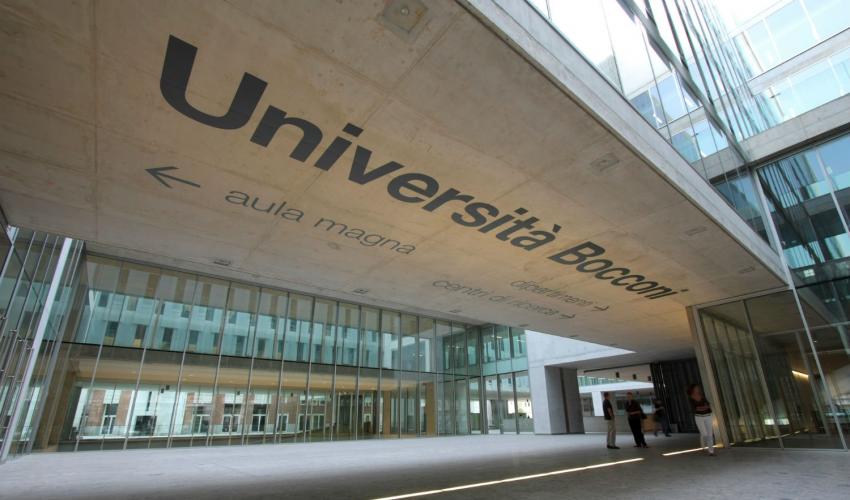
Salute, innovazione e sostenibilità: quali sfide per i sistemi di tutela della salute e le aziende sanitarie
In occasione del ventisettesimo convegno annuale, l’Associazione Italiana di Economia Sanitaria-AIES invita a presentare contributi che approfondiscano i temi della sostenibilità e dell’innovazione nell’ambito dei sistemi di tutela della salute e delle aziende sanitarie.
Negli ultimi due anni il diritto alla salute è stato messo ripetutamente in discussione per quanto riguarda la necessità e la capacità delle autorità di politica economica di individuare i bisogni sanitari e di predisporre appropriate tutele. Se, da una parte, ci sono vincoli di bilancio stringenti (sebbene leggermente rilassati a seguito della pandemia), d’altra parte c’è una domanda di sanità crescente a causa dell’invecchiamento della popolazione, con il conseguente incremento della prevalenza di malattie croniche, l’aumento dei costi e delle opportunità derivanti dai rapidi progressi tecnologici.
Queste dinamiche determinano un importante cambiamento nei modelli di cura tradizionali: in risposta al panorama sanitario sempre più complesso e in continua evoluzione, i sistemi sanitari devono pensare ad un’ottimizzazione delle risorse disponibili e all’integrazione tra i servizi sanitari e sociali, al fine di rispondere alla crescente domanda di salute.
L’Agenda 2030 delle Nazioni Unite ha definito 17 obiettivi per promuovere lo sviluppo sostenibile su scala globale. La pandemia da Covid-19 ha avuto l’effetto di accelerare il cambiamento verso un paradigma culturale che promuove il perseguimento di tali obiettivi a livello globale, nazionale e locale. In primo luogo, è emersa chiaramente la necessità di adottare l’approccio One Health che riconosce le interconnessioni tra salute dell’uomo, degli animali, delle piante e del pianeta – ambiente, biodiversità e clima in primis. One Health non è un concetto nuovo, ma la sua adozione è stata da sempre ostacolata da politiche e finanziamenti frammentati e strutture organizzative isolate.
Lo sviluppo sostenibile richiede l’adozione di un approccio di sistema che tenga in considerazione le dimensioni economica, sociale ed ambientale e che promuova assetti di governance collaborativa tra più settori, organizzazioni e professionisti. Le sfide emergenti richiedono il disegno e la progettazione di sistemi e strumenti di accountability e di rendicontazione dei risultati raggiunti rispetto ad ogni dimensione della sostenibilità.
In tale contesto, la digitalizzazione e l’innovazione tecnologica possono offrire un contributo importante al perseguimento della sostenibilità in ambito socio-sanitario.
Alla luce di quanto sopra, le tematiche sulle quali si invitano gli studiosi a contribuire comprendono le seguenti:
- Salute e ambiente
- One Health
- Digitalizzazione delle aziende e dei sistemi sanitari
- Innovazione tecnologica in sanità
- Nuovi modelli organizzativi e formule di servizio delle aziende sanitarie
- Nuovi modelli di governance collaborativa a supporto dello sviluppo sostenibile
- Public-private partnership per il raggiungimento degli obiettivi di sostenibilità
- Sostenibilità sociale, aging, cure formali e informali
- Disuguaglianze, equità e salute
- Gestione e misurazione della performance economica, sociale e ambientale
- Responsabilità e rendicontazione sociale
- Circular Economy e sanità
Sono graditi anche contributi su tematiche non inerenti al tema principale del convegno, che verranno discussi in una o più sessioni dedicate. I contributi possono essere teorici, empirici o di analisi delle politiche.
Il convegno annuale AIES è un’opportunità unica per riunire accademici, operatori sanitari e policy makers interessati all’economia della salute e sanitaria e al management delle aziende sanitarie e del settore salute.

XXVI NATIONAL CONFERENCE
MILANO, CERGAS – SDA BOCCONI SCHOOL OF MANAGEMENT UNIVERSITA’ LUIGI BOCCONI DECEMBER 2–3, 2021
SAILING THROUGH THE STORM: HEALTHCARE SYSTEMS IN TRANSITION FROM EMERGENCY TO NEW NORMAL
The Italian Health Economics Association invites scholars to submit contributions investigating the current global health emergency and its impact on health and well-being of the population, as well as the impacts on healthcare organizations and health systems.
The worldwide crisis due to COVID-19 pandemic is having an impact on almost every aspect of our society. From early 2020, COVID-19 was curbed in many countries by imposing combinations of non-pharmaceutical interventions such as isolation, quarantine, travel restrictions, the closure of schools, universities, workplaces and public spaces and the adoption of other measures characterized by high degree of stringency. Even though social distancing has reduced the rate at which sick individuals may infect others, this has naturally come at the cost of an economic crisis and forgone the benefits of close social contacts.
Even though the full effects of COVID-19 and the associated economic crisis are yet to be fully evaluated, it is expected that they will not affect all people in the same way. Social isolation may have created a new set of challenges for people with pre-existing health concerns, including mental health consequences. In general, vulnerable and disadvantaged groups are likely to be impacted more severely; for instance, older adults, especially those with cognitive decline or dementia, need emotional support through informal networks and health professionals.
Younger generations too suffer because of the lockdown: education has been disrupted, young people, who have lost their jobs or were entering the job market when COVID-19 related recession occurred, might carry the impact of this shock for years. The adverse effects of such a countrywide crisis have extended beyond the income shocks, changing people’s overall wellbeing as well as their attitudes due to higher perceived risk.
As far as healthcare organizations are concerned, the pandemic has exacerbated the negative side effects of the austere health policies in the last ten years, especially the radical cuts in resources (professionals, beds, equipment, technologies for ventilation, etc.) available to tackle this emergency. Moreover, the characteristics of the pandemic have placed most healthcare organizations in a critical situation due to the necessity to simultaneously deliver emergency services to extremely high numbers of patients affected by the Coronavirus and to maintain the provision of adequate levels health services for non-Covid patients. As a consequence, healthcare organizations have had to rapidly reassess their governance, capacity, operations, information and communication systems, and, even more critical, the way they provide services, in order to deal with the pandemic.
The efforts for containing the COVID-19 have profoundly reshaped usual care: health care has been often provided in remote mode. On the one hand, the use of telemedicine and telemonitoring has been and will be crucial in order to ensure the delivering of health services; on the other, this might have a negative impact on equity in healthcare access, especially among elderly patients and among those with low health literacy skills and/or digital skills.
Moreover, the healthcare policies at regional, national, and supra-national levels have had different impacts on the effective and timely response to the Coronavirus Emergency (e.g., policies on provision of personal protection equipment and, above all, vaccines; hospitals and laboratories networks; implementation of primary care and transitional care solutions; protection of long-term care structures; telemedicine, and so forth).
As a lesson for future epidemics, the theme of the 26th annual conference is focused on the impacts that the COVID-19 has had (or might have had) on individuals’ health and well-being, on healthcare organizations and systems, and on what we could have gained or lost because of the pandemic.
However, it is possible to send contributions on issues not related to the main theme of the conference and which will be discussed in one or more dedicated sessions.
The annual conference of the Italian Health Economics Associations is a unique opportunity to bring together scholars, healthcare practitioners and policy makers to discuss the lessons learnt.
Contributions can be theoretical, empirical or policy oriented and in the areas of the health economics, policy and management.

XXV NATIONAL CONFERENCE
Milan, 1-2 October 2020 (online)
Health Ccare systems under stress-test: lessons learned and implications for Research and Policy
The Italian Health Economics Association invites scholars to submit contributions investigating the current global health emergency and its impact on healthcare systems.
As the emergency spreads across the globe, health systems are facing enormous pressure to both manage COVID-19 patients and maintain essential services. Hit by unprecedent stress test, the systems need to ensure they have well-functioning plans to deal with the advancing outbreak, including provisions for increased numbers of staff, hospital beds, and supplies. As these challenges grow, governments and policymakers are calling for clear and comparable health systems evidence to inform their policies and to strengthen their capacity to respond to this unprecedented crisis.
These unprecedented times offer a unique occasion for scholars to investigate strengths and weaknesses of different systems and policy responses. The 25th annual conference of Italian Health Economics Associations is a unique opportunity to bring together academics, healthcare practitioners and policy makers to discuss these learning lessons. Contributions can be theoretical, empirical or policy oriented and in the areas of the health economics, policy and management.

XXIV NATIONAL CONFERENCE
Pisa, 3-4 October 2019
Health Care policy and management after retrenchment: what future for population health?
The Italian Health Economics Association invites scholars to submit contributions investigating the effects of austerity and retrenchment on the NHS and on the role that universalistic systems can still play in improving the health status of the population.

XXIII NATIONAL CONFERENCE
Napoli, 27-28 September 2018
National Healthcare Systems and universal coverage: are they still feasible?
Lessons learned and challenges ahead after 70 years of the British NHS and 40 years of the Italian NHS
Italian Health Economics Association invites scholars to submit contributions investigating the effects of 40 years of governance under the NHS on national health outcomesand the role that universalistic systems have played at international level in improving thehealth status of the population.

XXII NATIONAL CONFERENCE
Pavia, 5-6 October 2017
Demographic and epidemiological trends: implications for health economics and management
Italian Health Economics Association invites scholars to submit contributions investigating the implication of demographic (e.g. ageing and immigration) and epidemiological trends for health economics, policy and management. Contributions to the conference entitled can be theoretical, empirical or policy oriented.

XXI NATIONAL CONFERENCE
Bologna, 3-4 November 2016
Integrating Services for Better Health
Italian Health Economics Association is organizing its annual 2016 meeting and invites scholars to submit contributions investigating the role of services integration in promoting effectiveness, efficiency, quality and equity in health care systems and organizations. Contributions to the conference “Integrating services for a better health” can be either theoretical, empirical or policy oriented.

XX NATIONAL CONFERENCE
Sassari, 15-16 October 2015
Fostering and Governing Innovation in Healthcare Based on Evidence
Italian Health Economics Association invites scholars to submit contributions investigating the implication of demographic (e.g. ageing and immigration) and epidemiological trends for health economics, policy and management. Contributions to the conference entitled can be theoretical, empirical or policy oriented.

XIX NATIONAL CONFERENCE
Venice, 27-28 October 2014
Healthcare Financing and Welfare Models in the Era of Longevity
Italian Health Economics Association invites researchers to investigate the role and sustainability of healthcare systems in the era of longevity. Contributions to the conference can be either theoretical or empirical. It is possible to present contributions not pertaining to the subject of the Conference that will be discussed during one or more “Free Theme” sessions.

XVIII NATIONAL CONFERENCE
Trento, 22-23 November 2013
Beyond the Economic, Social and Political Crisis: The Role of Healthcare Systems
With the 2013 National Convention, the AIES invites researchers and practitioners to consider the impact of the global financial and economic crisis that began in 2007 on the health of the population and the role that the health and social systems play in promoting development and contributing to overcome the current recession; which has led to a real social and political crisis, especially in Europe.
PARTICIPANTS
UNIVERSITIES
PAPERS
SPEAKERS

